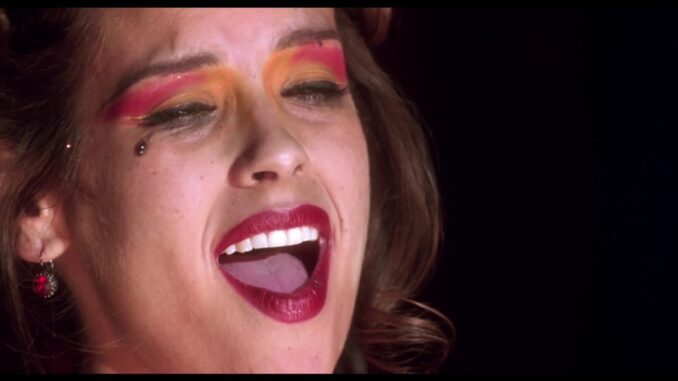
“`html
The recent passing of Rebekah Del Rio at the age of 57 marks not only the loss of a unique and powerful vocalist but also the closure of a chapter deeply interwoven with the haunting, dreamlike narrative of David Lynch’s masterpiece, Mulholland Drive. Del Rio’s performance of “Llorando,” a Spanish-language rendition of Roy Orbison’s “Crying,” stands as one of the most unforgettable scenes in cinematic history, a moment that transcends mere entertainment and enters the realm of pure, raw emotion.
The Power of Silence and Sound: Del Rio in Mulholland Drive
Del Rio’s role in Mulholland Drive is particularly poignant because it highlights the film’s core themes of illusion, heartbreak, and the deceptive nature of reality. Her performance is not simply a song; it’s a pivotal scene that unravels before the viewer, revealing the characters’ vulnerabilities and the undercurrent of despair that permeates the Hollywood dream. Here are some elements that contributed to the scene’s impact:
- A Cappella Perfection: The absence of instrumental accompaniment focuses all attention on Del Rio’s voice, making the performance intensely personal and vulnerable.
- The Contrast: The juxtaposition of the vibrant, almost gaudy club setting with the profound sadness expressed in the song creates a powerful tension.
- Unexpected Collapse: The moment Del Rio collapses mid-performance, yet the song continues playing, shatters the illusion of reality and reveals the underlying artificiality and pre-recorded nature of so much in the world of the film.
- Naomi Watts’ Reaction: The performance is not just about Del Rio’s singing; it’s about Naomi Watts’ character, Diane Selwyn, witnessing it. Her tears and emotional breakdown reflect the character’s own unravelling and her realization of her shattered dreams.
Del Rio’s voice, powerful and achingly beautiful, carried the weight of unspoken emotions. It resonated with a truth that words could not capture, a primal scream of grief and longing. The scene serves as a meta-commentary on the entertainment industry itself, questioning the authenticity of performance and the manipulation of emotions for spectacle.
Beyond Mulholland Drive, Rebekah Del Rio had a successful career as a singer-songwriter, but her contribution to Lynch’s film has indelibly marked her legacy. “Llorando” is more than just a song in a movie; it’s a symbol of the film’s enduring power and its ability to tap into the deepest recesses of the human heart. The world is a little quieter without her voice, but the echo of “Llorando” will continue to resonate within the cinematic landscape for years to come. She will be greatly missed by those who appreciated her gift.
“`
